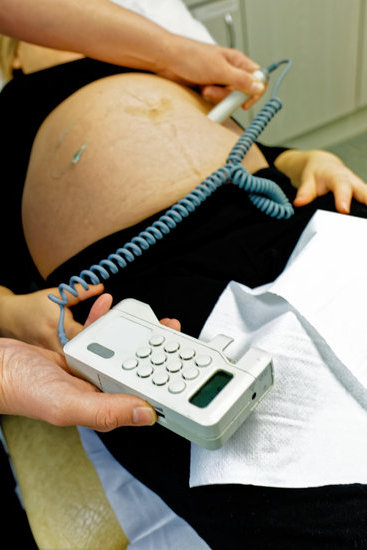How long do you wait to take a pregnancy test? Timing is crucial when it comes to taking a pregnancy test for accurate results. Understanding the importance of waiting for the right time to take a pregnancy test is essential for women who are trying to conceive or suspect they may be pregnant.
When it comes to detecting a pregnancy, timing is everything. The early signs and symptoms of pregnancy can vary from woman to woman, making it important to know what to look out for and when to take action. Understanding the menstrual cycle and its impact on fertility is also crucial in determining the right time to take a pregnancy test.
Factors such as the sensitivity of the pregnancy test, the level of hCG hormone in the body, and individual health conditions can affect when a pregnancy test should be taken for accurate results. It’s important to consider these factors before determining when to take a pregnancy test. Understanding these factors can help empower women with the knowledge they need in order to make informed decisions about their reproductive health.
Early Pregnancy Symptoms
When trying to conceive, it is natural to become hyper-aware of any potential changes in your body. Early pregnancy symptoms can vary from person to person, but there are a few common signs to look out for. These can include breast tenderness, fatigue, nausea, and a heightened sense of smell. However, it is important to remember that these symptoms can also be attributed to other factors such as stress or hormonal changes.
Understanding your menstrual cycle is crucial when it comes to identifying early pregnancy symptoms. Ovulation typically occurs around the middle of a 28-day cycle, so if you are experiencing symptoms around this time, it may be an indication of early pregnancy. It’s also worth noting that some women experience light spotting around the time their period would have been due if they are pregnant.
It’s important to be patient and wait for the right time before taking a pregnancy test. While some tests claim to accurately detect pregnancy before a missed period, the most reliable results are obtained when you wait until after your period is due. This reduces the chances of receiving a false negative result and allows for a more accurate confirmation of pregnancy.
| Early Pregnancy Symptoms | Potential Indicators |
|---|---|
| Breast tenderness | Changes in sensitivity or pain in the breasts |
| Fatigue | Feeling unusually tired or worn out |
| Nausea | Feeling queasy or having sudden urges to vomit |
| Heightened sense of smell |
Understanding the Menstrual Cycle
The menstrual cycle plays a crucial role in determining the right timing to take a pregnancy test. The average menstrual cycle lasts about 28 days, but it can vary from woman to woman, with cycles ranging anywhere between 21 to 35 days. Understanding the menstrual cycle is essential because it helps in determining when ovulation occurs and when it is safe to take a pregnancy test.
Ovulation typically occurs around the middle of the menstrual cycle, about 14 days before the start of your next period. This is the prime time for conception to take place, as this is when an egg is released from the ovary and is available for fertilization. If fertilization occurs, the fertilized egg will travel down the fallopian tube and implant itself into the lining of the uterus, leading to pregnancy.
Given this information, it is recommended to wait at least until you have missed your period before taking a pregnancy test for accurate results. Taking a test too early may lead to a false negative result due to low levels of hCG (human chorionic gonadotropin) – the hormone produced during pregnancy – not being detectable yet. It is important to wait until there has been enough time for hCG levels to rise high enough for detection.
| Menstrual Cycle Duration | Ideal Time to Take Pregnancy Test |
|---|---|
| 21-24 days | At least 7 days after missed period |
| 25-30 days | 5-7 days after missed period |
| 31-35 days | 3-5 days after missed period |
By understanding your own menstrual cycle and waiting until after you have missed your period, you can increase the likelihood of getting an accurate result from your pregnancy test. Knowing when and how long do you wait to take a pregnancy test can save you from unnecessary stress and disappointment associated with false results.
Factors Affecting When to Take a Pregnancy Test
Hormonal Imbalance and Contraceptives
Certain hormonal imbalances or the use of contraceptives can affect your menstrual cycle, making it difficult to determine when to take a pregnancy test. For instance, if you have been using oral contraceptives, it may take some time for your menstrual cycle to return to its natural rhythm after discontinuing use. This can make it challenging to pinpoint the ideal time for a pregnancy test.
Irregular Menstrual Cycles
Women with irregular menstrual cycles often struggle with determining when to take a pregnancy test. Since the timing of ovulation and menstruation can vary significantly from one cycle to another, it can be challenging to identify the best time for taking the test.
Previous Pregnancies and Miscarriages
If you have experienced previous pregnancies or miscarriages, it can impact your understanding of your body’s signs and symptoms during early pregnancy. You may be more attuned to recognizing early pregnancy symptoms, which could influence when you decide to take a pregnancy test.
Understanding how these factors can affect the timing of when to take a pregnancy test is crucial for obtaining accurate results. It’s essential to consider these variables and consult with a healthcare professional if you are unsure about when is the right time for you to take a pregnancy test.
Different Types of Pregnancy Tests and Their Accuracy
When considering how long to wait to take a pregnancy test, it is important to understand the different types of tests available and their accuracy. There are two main types of pregnancy tests: urine tests and blood tests. Both tests detect the presence of human chorionic gonadotropin (hCG), a hormone produced by the placenta during pregnancy.
Urine tests are the most commonly used at-home pregnancy tests. These tests can be purchased over-the-counter at most drugstores and are convenient and easy to use. They are also quite accurate when used correctly, with some brands boasting up to 99% accuracy. Blood tests, on the other hand, are administered by healthcare professionals and can detect lower levels of hCG than urine tests. This makes them more accurate and reliable, especially in the early stages of pregnancy.
In addition to urine and blood tests, there are also digital pregnancy tests available that provide a clear result in words, such as “pregnant” or “not pregnant,” rather than a line or symbol. While these may be easier to interpret, they generally have the same level of accuracy as traditional urine tests.
When deciding which type of test to use, it is important to consider factors such as cost, convenience, and timing in relation to how long you should wait before taking a pregnancy test.
The Ideal Time to Take a Pregnancy Test for Accurate Results
Once you suspect you might be pregnant, it can be tempting to rush out and take a pregnancy test immediately. However, understanding the ideal time to take a pregnancy test for accurate results is crucial in ensuring the reliability of the test. By knowing the right timing, you can avoid potential false negatives and unnecessary anxiety.
Understanding Ovulation and Implantation
The ideal time to take a pregnancy test revolves around key events in a woman’s menstrual cycle. Understanding ovulation and implantation can help determine the appropriate timing for testing. Ovulation typically occurs around the middle of a woman’s menstrual cycle, at which point an egg is released from the ovaries.
If fertilization occurs, the fertilized egg will then travel to the uterus for implantation, which usually happens around 6-12 days after ovulation. It is essential to wait until after implantation for accurate results, as this is when the body starts producing hCG, the hormone detected by pregnancy tests.
Timing Recommendations
For most women, it is advisable to wait until their expected period date or at least one week after ovulation before taking a pregnancy test. Testing too early may result in a false negative due to low levels of hCG that may not be detectable yet.
If you have irregular periods or are unsure about your ovulation date, it may be best to consult with a healthcare provider on when to take a pregnancy test for accurate results based on your individual cycle.
The Importance of Patience
Waiting for the ideal time to take a pregnancy test can be an emotional rollercoaster filled with anticipation and anxiety. However, practicing patience and waiting for the right time can ultimately lead to more reliable results and peace of mind. While waiting, focus on self-care practices such as getting enough rest, eating well-balanced meals, and managing stress levels effectively.
What to Do While Waiting for the Right Time to Test
While you are waiting for the right time to take a pregnancy test, it’s important to focus on taking care of yourself physically and emotionally. This can be a stressful and anxiety-inducing time, but there are several things you can do to help ease your mind and prepare for the possibility of a positive result.
One of the most important things to do while awaiting the right time to take a pregnancy test is to maintain a healthy lifestyle. This means eating well-balanced meals, staying hydrated, getting regular exercise, and managing stress as best as you can. Taking care of your physical health will not only benefit you if you are indeed pregnant, but it will also help alleviate some of the anxiety you may be feeling during this waiting period.
In addition to focusing on your physical health, it’s also crucial to pay attention to your emotional well-being. Waiting for the right time to take a pregnancy test can be an emotional rollercoaster, filled with uncertainty and anticipation. It’s essential to lean on your support system during this time, whether it’s a partner, family member, or friend.
Seeking out emotional support from those closest to you can provide comfort and reassurance as you navigate through this process. Remember that it’s okay to have conflicting emotions during this waiting period; being open about your feelings and seeking support can make a significant difference in how you cope with the wait for accurate results.
The Emotional Rollercoaster of Waiting for Results
Waiting to take a pregnancy test can be an emotional rollercoaster for many women. The anticipation and uncertainty can lead to feelings of anxiety, excitement, fear, and hope all at once. It can be difficult to know how long to wait before taking the test, especially when you are eager to find out if you are pregnant or not.
During this waiting period, it’s important to take care of your emotional well-being. Here are some tips on how to navigate the emotional rollercoaster while waiting for the right time to take a pregnancy test:
- Stay busy and distracted: Keeping yourself occupied with activities and hobbies can help take your mind off the waiting period. Whether it’s going for a walk, reading a book, or spending time with loved ones, finding ways to distract yourself can make the time pass more quickly.
- Lean on your support system: Talking about your feelings with close friends or family members can provide comfort and reassurance during this anxious time. Having someone to confide in can help alleviate some of the emotional stress.
- Practice self-care: Engage in self-care activities such as meditation, yoga, or taking relaxing baths. Taking care of your physical and mental well-being is essential during this time of uncertainty.
The emotional rollercoaster of waiting for results can be challenging, but it’s important to remember that whatever the outcome may be, you are not alone in this journey. Finding healthy ways to cope with the waiting period is crucial for maintaining emotional balance and well-being.
Conclusion
In conclusion, understanding the importance of timing when it comes to taking a pregnancy test is crucial for accurate results. Knowing how long to wait to take a pregnancy test can help women avoid unnecessary anxiety and disappointment. Early pregnancy symptoms may lead to the urge to take a test immediately, but it is important to be patient and wait for the right time in order to get accurate results.
Factors such as the length of the menstrual cycle and the timing of ovulation play a significant role in determining when to take a pregnancy test. It’s essential for women to familiarize themselves with their own menstrual cycle and pay attention to any early pregnancy symptoms they may be experiencing. By being aware of these factors, women can better understand when is the ideal time to take a pregnancy test for accurate results.
Empowering oneself with knowledge about different types of pregnancy tests and their accuracy can also help in making an informed decision about when to take a test. While waiting for the right time, it’s important for women to focus on self-care and emotional support.
The emotional rollercoaster of waiting for results can be challenging, but staying informed and taking care of oneself can make this waiting period more bearable. Overall, by understanding the importance of timing and empowering oneself with knowledge, women can navigate through the process of taking a pregnancy test with confidence and assurance.
Frequently Asked Questions
How Soon Will a Pregnancy Test Read Positive?
A pregnancy test can read positive as early as 7-10 days after conception, although some tests claim they can detect pregnancy even earlier. It’s important to follow the instructions on the specific test you are using.
Can I Take a Pregnancy Test After 5 Days?
Taking a pregnancy test after only 5 days may be too soon to get an accurate result. It’s generally recommended to wait at least 10-14 days after unprotected sex or a missed period before taking a pregnancy test for the best chance of an accurate result.
How Soon After Unprotected Can I Test for Pregnancy?
After unprotected sex, it’s possible for a woman to become pregnant if ovulation and fertilization occur. However, it’s generally best to wait at least 10-14 days after potential conception before testing for pregnancy as this will give the body enough time to produce detectable levels of the pregnancy hormone hCG.

Welcome to my fertility blog. This is a space where I will be sharing my experiences as I navigate through the world of fertility treatments, as well as provide information and resources about fertility and pregnancy.





